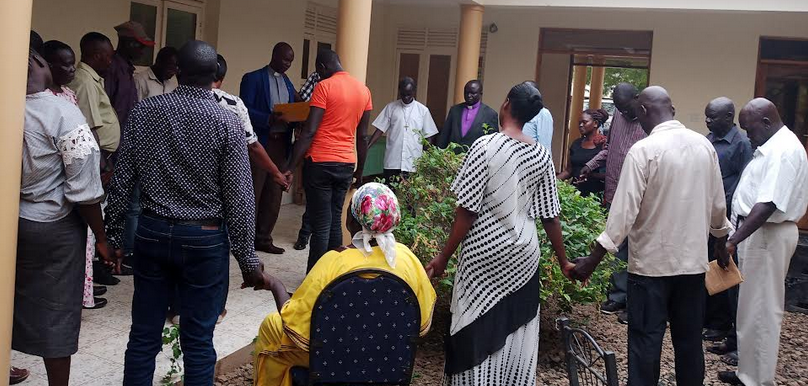A two-day retreat of political leaders from Ikotos County in Eastern Equatoria resolved to cease all forms of hostilities and hold perpetrators accountable.
The retreat, organized by the South Sudan Council of Churches (SSCC) in Torit town and attended by over 40 leaders, came up with a communique of 10 resolutions.
Maurice Okwera, the SSCC coordinator, read the communique which said the leaders were concerned about the current situation in the county and regret the recent unfortunate tragedy which led to the heinous killing of Caritas Switzerland humanitarians.
“We uphold the belief and need to restore peaceful coexistence of our people and are determined to deter and eliminate the vice of disunity, targeted and revenge killings, cattle raiding and breakdown of morality,” the communique read.
The leaders said that they are mindful of the need to adhere to the rule of law to bring about justice through accountability.
“We the sons and daughters of Ikotos, national and state parliamentarians, executives, community and religious leaders, youth and leaders of civil society groups met between 15 and 16 August at Torit Hotel and resolved to promote unity among the leaders and peaceful coexistence of our people through continuous dialogue, reconciliation and responding to the community needs and programs,” the communique said.
The leaders stressed the need to put an end to highway ambushes and robberies and ambushes by identifying criminals and bringing them to book.
Grace Abalang, a woman parliamentarian representing Ikotos County in the national assembly, faulted her colleagues for being negative and segregating.
“We as leaders localize ourselves into our villages and we do not behave like national leaders and do not see ourselves as leaders of Ikotos County,” she charged. “We keep blaming the center yet we are part of the center itself. The criminals are all over our villages does not come from one place and referring everything thing wrong to people in the center will not help us because we are the ones defending wrong.”
Meanwhile, Caesar Baye Oyalala, a parliamentarian and former governor of the state said the name Lango united the people of the county in the past but that now every community refers to themselves by their own names.
“That (Lango) is the name that kept us united but it is trying to disappear. The most important thing is the unity of our people,” he said. “As leaders, what is dividing us is the idea that politics is a lucrative business. I am disappointed by the apparent dismantling of what was difficult to build but is now easy to destroy.”
Another parliamentarian, Martin Odwar, said politics cannot be avoided but warned his colleagues against politicizing community matters.
“My dear brothers and sisters, these types of division we are talking about is because of the nature of politics itself, it has no permanent friend or. You will continue to see the differences among politicians because they continue shifting their stance and if you try to follow them then you will be the victim.”
In a diverse community like ours in Ikotos, you do not need to look at things from a political view,” he added.
Ikotos County is inhabited by Otuho-speaking communities of Obira, Burung, Logir, Dongotono, Imotong, Bira, and Lorwama united under the tribal name Lango.




